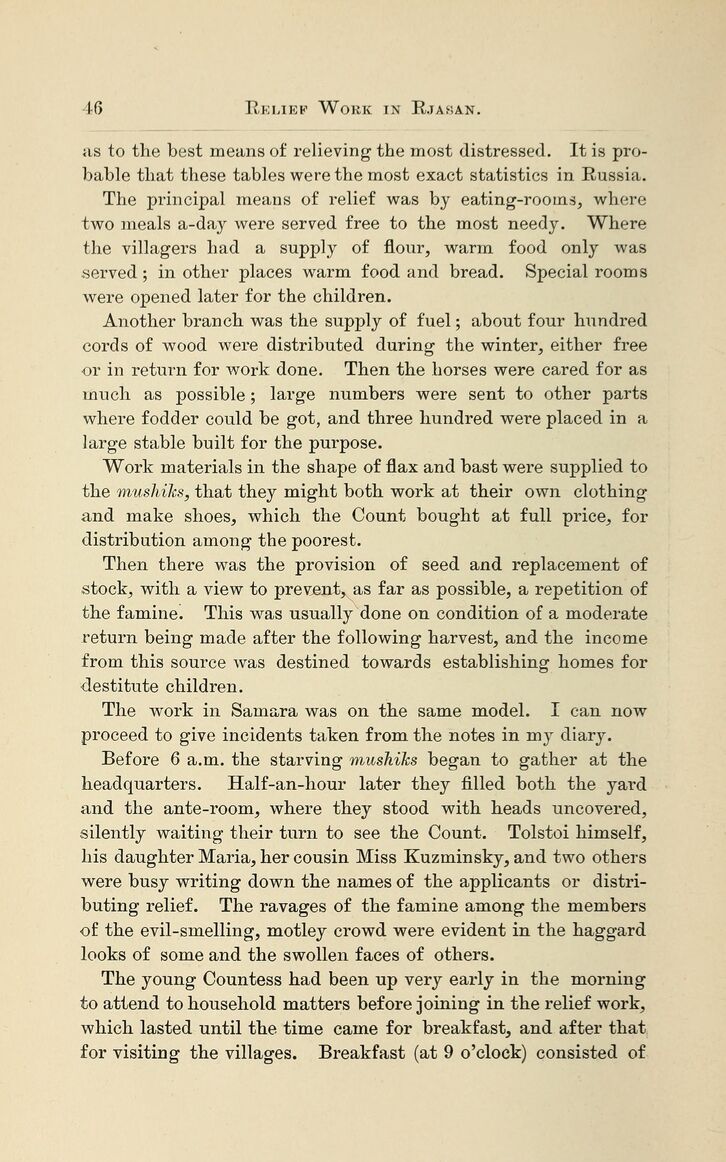
Full resolution (JPEG) - On this page / på denna sida - IV. Relief Work in Rjasan

<< prev. page << föreg. sida << >> nästa sida >> next page >>
Below is the raw OCR text
from the above scanned image.
Do you see an error? Proofread the page now!
Här nedan syns maskintolkade texten från faksimilbilden ovan.
Ser du något fel? Korrekturläs sidan nu!
This page has been proofread at least once.
(diff)
(history)
Denna sida har korrekturlästs minst en gång.
(skillnad)
(historik)
as to the best means of relieving the most distressed. It is
probable that these tables were the most exact statistics in Russia.
The principal means of relief was by eating-rooms, where
two meals a-day were served free to the most needy. Where
the villagers had a supply of flour, warm food only was
served; in other places warm food and bread. Special rooms
were opened later for the children.
Another branch was the supply of fuel; about four hundred
cords of wood were distributed during the winter, either free
or in return for work done. Then the horses were cared for as
much as possible; large numbers were sent to other parts
where fodder could be got, and three hundred were placed in a
large stable built for the purpose.
Work materials in the shape of flax and bast were supplied to
the mushiks, that they might both work at their own clothing
and make shoes, which the Count bought at full price, for
distribution among the poorest.
Then there was the provision of seed and replacement of
stock, with a view to prevent, as far as possible, a repetition of
the famine. This was usually done on condition of a moderate
return being made after the following harvest, and the income
from this source was destined towards establishing homes for
destitute children.
The work in Samara was on the same model. I can now
proceed to give incidents taken from the notes in my diary.
Before 6 a.m. the starving mushiks began to gather at the
headquarters. Half-an-hour later they filled both the yard
and the ante-room, where they stood with heads uncovered,
silently waiting their turn to see the Count. Tolstoi himself,
his daughter Maria, her cousin Miss Kuzminsky, and two others
were busy writing down the names of the applicants or
distributing relief. The ravages of the famine among the members
of the evil-smelling, motley crowd were evident in the haggard
looks of some and the swollen faces of others.
The young Countess had been up very early in the morning
to attend to household matters before joining in the relief work,
which lasted until the time came for breakfast, and after that
for visiting the villages. Breakfast (at 9 o’clock) consisted of
<< prev. page << föreg. sida << >> nästa sida >> next page >>